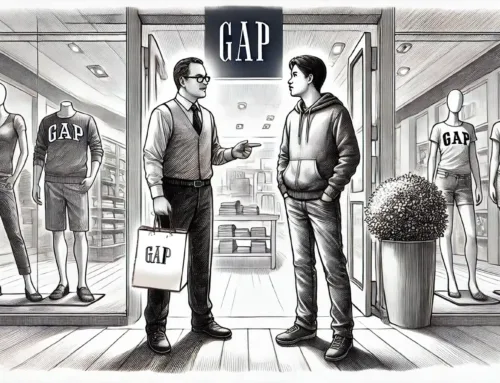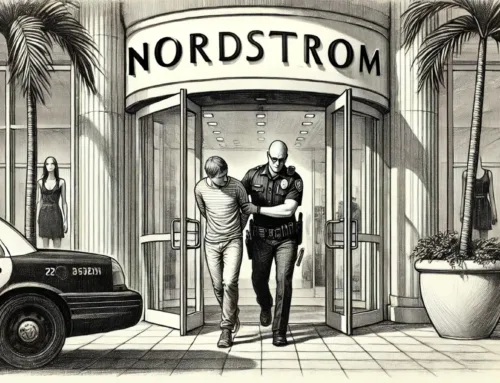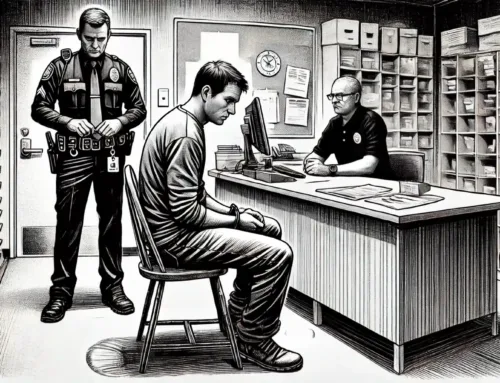How You Can Be Wrongly Detained for Shoplifting
Have you ever been stopped in a store and accused of shoplifting when you were completely innocent? This humiliating and infuriating experience happens more often than you may realize. While loss prevention officers have an important job to do in preventing theft, they must follow strict legal guidelines before detaining a customer. When they fail to adhere to proper procedures, law-abiding shoppers can get caught in the crosshairs.
In this post, I’ll explain the key observations that loss prevention personnel should make before making a shoplifting stop. I’ll also discuss common mistakes and missteps that can lead to false accusations. My goal is to educate the public on your rights as a customer, while also helping prevent the nightmare of being improperly detained for a crime you didn’t commit.
Probable Cause in a Shoplifting Case
Loss prevention (LP) officers do not have the same authority as police officers. They are legally allowed to temporarily detain someone suspected of shoplifting, but only when very specific conditions have been met. In other words, they can only detain someone for shoplifting if they have probable cause. In order to establish probable cause in a shoplifting case, the loss prevention officer should make sure they have followed the following steps:
- Approach – The suspect is observed entering the area where the merchandise is displayed, without already having the item(s) in their possession beforehand.
- Selection – The suspect is observed selecting or taking the merchandise off the shelf/rack.
- Concealment – The suspect is seen concealing the merchandise, either on their person or in a bag, purse, backpack, etc. (Note: concealment may not always occur.)
- Uninterrupted Surveillance – The suspect is kept in continuous view until they pass the checkout registers and exit the store.
- Passing Point-of-Sale – The suspect passes all registers without paying for the concealed merchandise.
- Exit – The suspect exits the store while still in possession of the unpaid merchandise.
Seems pretty straightforward, right? While these steps may appear clear-cut on paper, properly executing them in the real world is far more challenging. LP personnel have limited time to make judgment calls, all while operating on an adrenaline rush. This leads to mistakes.
False Accusations: Where LP Goes Wrong
Here are some common ways loss prevention officers fail to adhere to probable cause guidelines, resulting in incorrectly detaining law-abiding shoppers:
- Assuming concealed merchandise is unpaid – A customer may enter with an item already in their bag or pocket that gets mistaken for unpaid store merchandise. LP did not observe the suspect select the item, failing Step 2.
- Losing visual contact – LP takes their eyes off the suspect for a period of time, breaking the continuous surveillance requirement in Step 4. The suspect may have dumped the merchandise, but LP makes an assumption.
- Unclear register location – Registers may be located both inside and outside the store. LP stops someone right after they walk out the door, before determining if they passed all checkout points.
- Relying on gut instinct – LP may have an off-feeling about someone, but cannot point to any specific probable cause steps they witnessed. They apprehend the person based on a hunch.
- Poor training – An inexperienced or undertrained LP officer may not fully understand probable cause laws and procedures. Their ignorance leads to improper stops.
- Quotas & incentives – Some companies encourage their LP staff to make a certain number of stops per month. This quota pressure causes sloppy work and cut corners.
While understanding common LP mistakes is helpful, it still leaves innocent shoppers asking: How can I prevent being falsely accused? Here are five tips:
Tips on How to Avoid Erroneous Shoplifting Stops
- If you need to bring an item in with you, make it obvious. Carry medicine bottles, product instructions, or an empty package visibly in your hand rather than concealed in a bag or pocket.
- If purchasing multiple items, use a cart rather than a purse or backpack. Checkout with a cashier versus self-checkout. Don’t give LP any reason to be suspicious.
- If you feel you are being watched or followed, ditch your cart and immediately leave the store. You can always come back another day. Don’t give LP a chance to falsely accuse you.
- Be aware of register locations. Make sure LP sees you pass all checkout points, and do not stop right when exiting the store doors.
- If wrongly stopped, calmly state that you do not consent to the detention and will only comply due to fear of their threat. Politely request they review security footage for proof you did nothing illegal. Provide identifying information only if legally required.
Shoplifting is a real problem for retailers, and LP personnel have a legitimate purpose in stopping actual thieves. However, following proper lawful procedures is critical to avoid incorrectly detaining innocent customers in the process.
If you have been wrongly stopped or accused of shoplifting, contact a lawyer right away. An experienced criminal defense attorney can advise you of your rights and represent you throughout any legal proceedings. Don’t let an improper LP detention go unchallenged. Protect yourself and fight back against false allegations by seeking legal counsel.
CALL US NOW for a CONFIDENTIAL INITIAL CONSULTATION at (305) 538-4545, or take a moment to fill out our confidential and secure intake form.* The additional details you provide will greatly assist us in responding to your inquiry.
THERE ARE THOUSANDS OF LAW FIRMS AND ATTORNEYS IN SOUTH FLORIDA. ALWAYS INVESTIGATE A LAWYER’S QUALIFICATIONS AND EXPERIENCE BEFORE MAKING A DECISION ON HIRING A CRIMINAL DEFENSE ATTORNEY ATTORNEY FOR YOUR MIAMI-DADE COUNTY CASE









